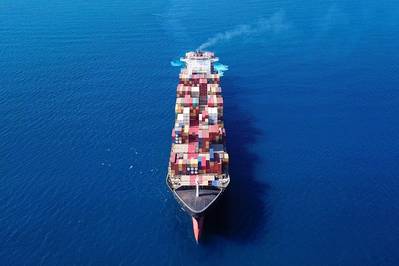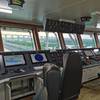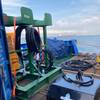More Ships Adding Scrubbers ahead of 2020
An increase in the number of ships adding cleaning systems to their smokestacks will mean vessels will continue to burn a sizable amount of fuel oil once new sulphur regulations for the fuel go into effect, Vienna-based consultancy JBC Energy said on Tuesday.
Ships installed with exhaust gas cleaning systems, known as scrubbers, are expected to burn 600,000 barrels per day (bpd) of high-sulphur fuel oil (HSFO) in 2020 when the new rules from the International Maritime Organization (IMO) start, JBC said.
To combat air pollution from the shipping industry, the IMO enacted rules reducing the sulphur content of the bunker fuel that ships can burn to 0.5 percent by January 2020, from 3.5 percent currently.
Ships without scrubbers would have to burn costlier low-sulphur fuels such as marine gasoil or ultra-low-sulphur fuel oil to comply with the clean air rules.
"Exhaust Gas Cleaning Systems ... have come a long way since March," said the consultants said, referencing their own report then that said scrubbers could still have some impact on bunker demand in 2020.
"Since then, data from scrubber industry group EGCSA has underpinned this position with the number of vessels with scrubbers installed or on order put at 983 as of the start of June," said JBC.
Additionally, companies that once dismissed scrubbers, like German shipping company Hapag-Lloyd, are reconsidering their position in light of studies praising scrubber economics.
In March, Hapag-Lloyd's chief executive had said installing scrubbers to remove sulphur did not appear to be the company's preferred option.
"The uptick in scrubber interest and hence HSFO appears to have been noticed in the HSFO forward markets with the backwardated spread between the August 2018 contract month and January 2020 having narrowed by $4 per barrel since the start of July,' said JBC citing data from oil brokers PVM.
(Reporting by Roslan Khasawneh; Editing by Christian Schmollinger)











